Los Angeles County’s District Attorney Must Go, and Here’s Why
Jackie Lacey, who oversees the largest prosecutorial office in the nation, has a pattern of neglecting black, brown and poor Angelenos.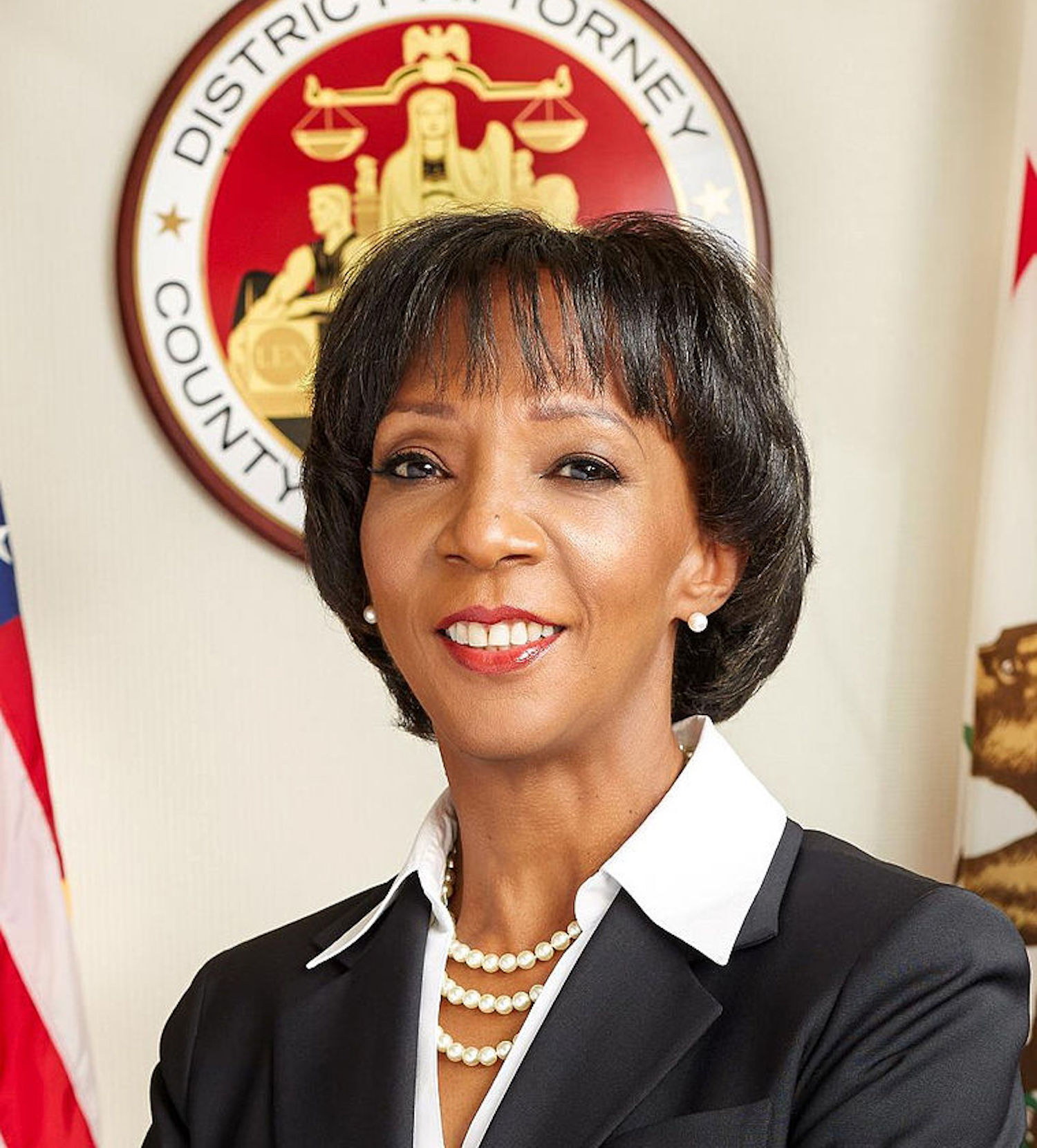 Los Angeles County District Attorney Jackie Lacey. (Los Angeles County)
Los Angeles County District Attorney Jackie Lacey. (Los Angeles County)
All over the nation, organizers are calling attention to the tremendous power of prosecutors and demanding reforms that protect public safety and accountability for all communities, especially black people, people of color and poor people.
Marilyn Mosby in Baltimore, who pressed charges against the officers who beat Freddie Gray to death, and Larry Krasner in Philadelphia, who released a progressive values-based memo on how his office would conduct business shortly after his election, are just two examples of prosecutors who have made efforts to incorporate community demands. Other prosecutors have announced new efforts to investigate prior prosecutorial misconduct, rein in abusive policing practices and prioritize justice over convictions, although not without critique.
An increasing number of candidates also have run on progressive, community-driven platforms, including Tiffany Cabán in Queens, who lost narrowly in June under the banner of “People-Powered Justice” and Audia Jones, a progressive black candidate in Harris County, Texas (anchored by Houston), who is gaining steam in the same county where 19 black female judges recently were elected to the bench.
In stark contrast, Los Angeles County District Attorney Jackie Lacey, who oversees the largest prosecutorial office in the nation, continues to neglect black Angelenos, communities of color and poor people.
At age 21, Lacey told Seventeen magazine, “I’ve seen so many black people cheated by tradesmen or intimidated by the police because they have no knowledge of their legal rights. I’d like to help change that.” But as district attorney, Lacey has instead come to embody her own childhood demons. In her 33 years in the office, she has routinely failed to protect communities of color. Through discriminatory policies and practices, she perpetuates a two-tiered system of justice that lays bare the legal system’s foundational contempt toward black lives.
This pattern of neglect was on full display throughout Lacey’s handling of the Ed Buck case. Buck, a wealthy, white and well-connected political donor, was arrested in September in connection with the near-death of a black gay man who survived a methamphetamine attack by Buck in his apartment. Subsequent to that arrest, Buck was charged in two previous deaths of men in his apartment—that of Gemmel Moore, who was killed in 2017, and Timothy Dean, who died in January. Both Moore and Dead were black, gay and financially vulnerable to Buck’s sadism. But they weren’t the only ones.
At the time of Dean’s death, Lacey was already aware of Buck’s pattern of victimization. Most of Buck’s targets were impoverished gay men of color. But she did nothing to stop Buck. It wasn’t until a third black gay man nearly lost his life in September that Buck was finally arrested. Even then, she sought no accountability for the tragic deaths of Moore and Dean. The charges related to their deaths were brought in federal court.
After Moore’s death, other men fortunate enough to survive Buck’s abuse reported their trauma to county investigators. Their accounts were consistent with information contained in Moore’s journal, which detailed incidents of Buck stalking and preying upon other black gay men, sometimes enlisting victims to lure additional victims, much in the way sex traffickers coerce victims to aid them in their crimes. Throughout this ordeal, family members, local community groups and activists, including Moore’s mother and sister, Black Lives Matter and activist Jasmyne Cannick, implored Lacey to take the victims’ stories seriously. Considering the mounting evidence against Buck, they hoped L.A.’s top prosecutor would seek justice and prioritize their safety.
Instead, Lacey turned away from their pain, from their pleas and even from their deaths. In the year and a half between the deaths of Moore and Dean, Lacey refused to engage with victims, who said they were made to feel like criminals. Lacey neglected to warn their communities. She failed to protect the vulnerable, choosing instead to protect the wealthy donor with whom she had financial ties—Lacey has accepted multiple donations from Buck, including one after Moore’s death.
Lacey is now attempting to blame the Los Angeles Sheriff’s Department and coroner’s office for her inaction. The families of the victims in the Ed Buck case learned of this development through the media, and not directly from Lacey’s office.
Buck’s case is just the latest example of Lacey applying two different systems of justice. Long before she ran the office, Lacey was turning her back on black and brown lives. In 1998, she even sent a young man to prison for life over a stolen cellphone.
With Lacey as district attorney, black people in Los Angeles are incarcerated at five times the rate of white residents. She relies on racist gang databases used disproportionately to charge black and brown people, especially youths, with offenses that would otherwise be non-crimes, including crimes of association. Lacey has obtained death sentences exclusively for defendants of color. She stood in the way of efforts to expunge marijuana convictions, a measure that would provide relief to countless black and brown people caught up in the racist war on drugs. She continues to rely on the testimonies of untrustworthy law enforcement officers. She oversees an office culture that, according to recent reports, enables sexual harassment and “punishes” victims who have the courage to speak out. And despite Lacey’s promises to seek alternatives to incarceration for people struggling with mental illness, she is responsible for incarcerating 3,000 people in mental health crisis who could safely be released but are instead languishing in Los Angeles County Jail, while touting her record on mental health. Like the rest of the county’s jail population, most are black, brown and poor.
Perhaps most notably, Lacey has refused to hold police officers responsible for the murders of hundreds of Angelenos, even when officers were found “out-of-policy,” were fired for their actions, or in instances in which the police chief requested prosecution. The lone exception came recently, when she decided to prosecute one sheriff’s deputy, an officer of color. Of more than 500 police killings since she took office, mostly involving black and brown victims, Lacey maintains that only one case involved impropriety. This shows a complete disregard for the lives of those victimized most frequently by law enforcement.
In September 2017, the families of Kisha Michael and Marquintan Sandlin stood on the steps of the Hall of Justice, where Lacey’s office is located. Hundreds of victims of police violence, Black Lives Matter activists and other community leaders gathered to deliver a Color of Change petition with more than 10,000 signatures urging Lacey to prosecute police who kill, beginning with the five Inglewood officers who killed Michael and Sandlin after approaching them in a parked car. This shooting left seven children without parents. Rather than greeting her constituents, Lacey reacted by locking them out of the building. Since October 2017, Black Lives Matter and allies have organized weekly protests outside Lacey’s office. After Lacey reneged on a promised town hall in January 2018, calls to #ProsecuteKillerCops shifted to #JackieLaceyMustGo.
Despite repeated attempts to address Lacey’s discriminatory treatment, she’s made a habit of simply rejecting demands and refusing to meet with constituents, including the families of Buck’s victims. After Buck’s arrest, Lacey had the audacity to give conflicting testimony about what her office knew, and what she could have done with that information. U.S. Rep. Karen Bass of California summed it up best when she said that Lacey’s “inaction” in the Buck case sent a message that “black gay lives obviously didn’t matter.” Lacey made an appearance at the Stonewall Democratic Club to address the issue and seek its endorsement. She was confronted by several of the families of those killed by police and challenged by the oldest LGBTQ Democratic club in the county to “restore trust or resign.”
As Lacey’s re-election draws near, she faces off with three challengers (up from none in 2016), all running on more progressive platforms. Former San Francisco D.A. George Gascon, who has publicly committed to decarceration, is widely hailed as the most viable challenger. Enthusiasm also surrounds Rachel Rossi, a comparatively young black woman and former federal public defender who has pledged a progressive platform. Lacey is also being challenged from within her own ranks by Richard Ceballos, a veteran prosecutor whose platform includes the creation of a separate unit to prosecute police. What is emerging in the Los Angeles race for district attorney perhaps stands as the starkest example of shifts in approach to the office. Despite her pledge as a young woman, Lacey is running on a pro-police platform that many more politically astute, justice-minded and progressive voters view as aiding and abetting police violence.
While Lacey, may be the first black and first woman to serve as the county’s district attorney, for many, identity is not enough. In the words of Zora Neale Hurston, “All my skinfolk ain’t my kinfolk;” Lacey’s support of systemic injustices and her unwillingness to protect the very people she vowed to help—including those who look like her—cannot be tolerated or ignored. We all deserve better. We deserve a district attorney who, like a growing number of prosecutors around the country, understands that she or he has the power to work against the systemic injustices that have torn apart our communities for generations. And until that day comes, we will not be silent.
Your support matters…Independent journalism is under threat and overshadowed by heavily funded mainstream media.
You can help level the playing field. Become a member.
Your tax-deductible contribution keeps us digging beneath the headlines to give you thought-provoking, investigative reporting and analysis that unearths what's really happening- without compromise.
Give today to support our courageous, independent journalists.
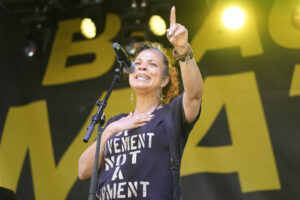
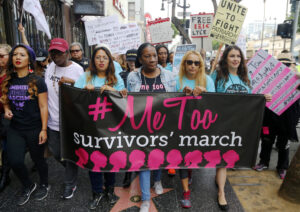

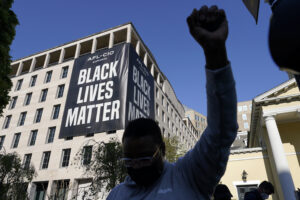
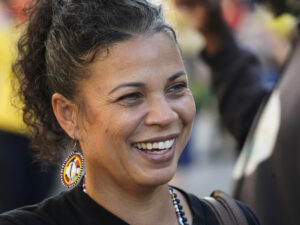
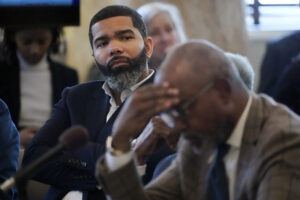
You need to be a supporter to comment.
There are currently no responses to this article.
Be the first to respond.